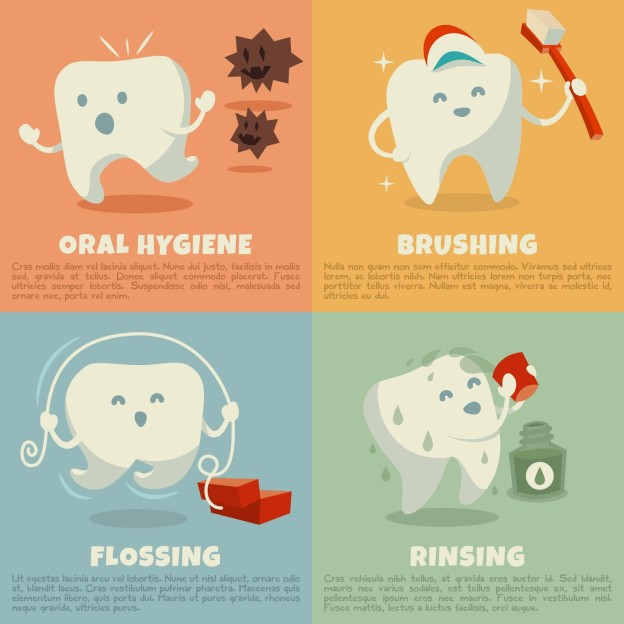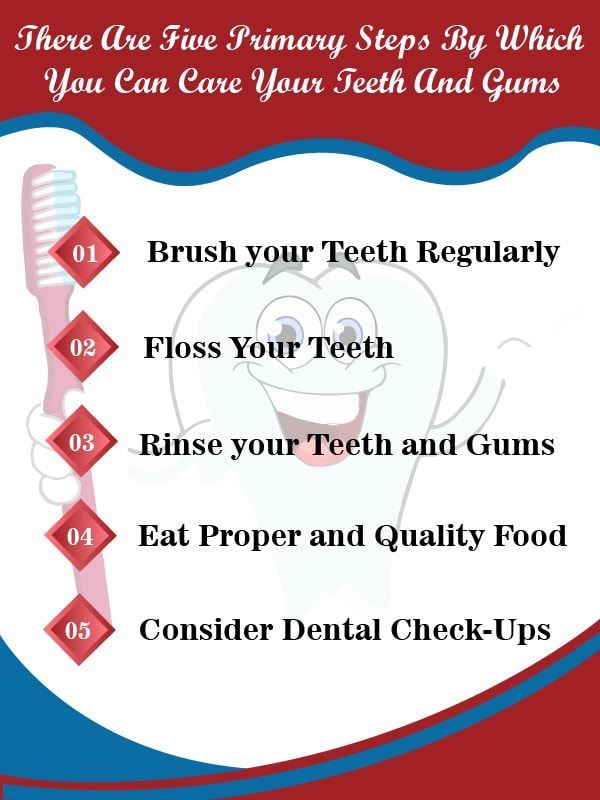Do you ever wonder why it’s so important to take care of your teeth? Well, think about it – your teeth play a crucial role in your everyday life. They enable you to speak clearly, eat comfortably, and even give you a beautiful smile. Without proper care, your teeth can suffer from various dental problems, leading to pain, discomfort, and even loss of teeth. In this article, you’ll learn all about the importance of taking care of your teeth and how it can contribute to your overall health and well-being.
Taking care of your teeth goes beyond just brushing and flossing. It’s about maintaining good oral hygiene practices, regularly visiting the dentist, and being mindful of what you eat and drink. By doing so, you can prevent issues like tooth decay, gum disease, and bad breath. Additionally, proper oral care can help prevent more serious health conditions, such as infections or even heart disease. So, if you want to keep your teeth healthy and avoid unnecessary pain and expenses, read on to learn more about the steps you can take to maintain good oral hygiene.
Maintaining Oral Health
Preventing Tooth Decay
Taking care of your teeth is essential for maintaining oral health. Tooth decay is a common dental issue that can lead to serious dental problems if not properly addressed. By following proper oral hygiene practices and making smart dietary choices, you can prevent tooth decay and keep your teeth healthy and strong.
Preventing Gum Disease
Another important reason to take care of your teeth is to prevent gum disease. Gum disease, also known as periodontal disease, is a bacterial infection that affects the gums and jawbone. It can lead to tooth loss and other serious oral health issues if left untreated. By practicing daily gum care, visiting your dentist regularly, and controlling risk factors, you can prevent gum disease and maintain healthy gums.
Promoting Overall Well-being
Maintaining good oral health goes beyond just preventing tooth decay and gum disease. It is also closely linked to your overall well-being. Poor oral health has been linked to various systemic diseases, including heart disease, respiratory infections, and cognitive decline. By taking care of your teeth, you can reduce the risk of these diseases and maintain better overall health.
Preventing Tooth Decay
Importance of Regular Brushing
Regular brushing is essential for preventing tooth decay. Brushing your teeth twice a day, using a soft-bristled toothbrush and fluoride toothpaste, helps remove plaque and bacteria from your teeth. Plaque is a sticky film that forms on your teeth and contains harmful bacteria that can cause tooth decay. By brushing regularly, you can effectively remove plaque and reduce the risk of cavities.
Flossing for Optimal Oral Hygiene
In addition to regular brushing, flossing plays a crucial role in maintaining optimal oral hygiene. Brushing alone cannot reach the spaces between your teeth, where plaque and food particles can accumulate. Flossing helps clean these hard-to-reach areas and prevents gum inflammation and tooth decay. It is recommended to floss at least once a day for effective oral hygiene.
Avoiding Sugary and Acidic Foods
Your diet also plays a significant role in preventing tooth decay. Consuming excessive amounts of sugary and acidic foods and drinks can increase the risk of cavities. Sugar acts as food for bacteria in your mouth, and the acids produced by these bacteria can damage your tooth enamel. It is important to limit your consumption of sugary and acidic foods and opt for healthier alternatives.

Preventing Gum Disease
Daily Gum Care Practices
Practicing daily gum care is crucial for preventing gum disease. Along with regular brushing and flossing, you should also incorporate gum care practices into your oral hygiene routine. This includes gently massaging your gums with your fingers or using a soft-bristled toothbrush to stimulate blood circulation and promote gum health.
Regular Dental Check-ups
Visiting your dentist regularly is essential for preventing gum disease. Your dentist can perform professional teeth cleaning to remove plaque and tartar buildup, which can contribute to gum disease. Regular check-ups also allow your dentist to identify early signs of gum disease and take necessary measures to prevent its progression.
Controlling Risk Factors
Certain risk factors can increase the likelihood of developing gum disease. Smoking, for example, is strongly associated with gum disease and can significantly compromise oral health. Hormonal changes, such as those occurring during pregnancy, can also increase the risk of gum disease. Additionally, individuals with diabetes are more prone to gum problems. By controlling these risk factors, you can reduce the chances of developing gum disease.
Promoting Overall Well-being
Maintaining a Healthy Diet
Taking care of your teeth is not just about oral health but also about promoting overall well-being. A healthy diet rich in essential nutrients is beneficial for both your oral health and your overall health. Foods high in calcium, such as dairy products and leafy greens, help strengthen your teeth. Consuming plenty of fruits and vegetables provides essential vitamins and antioxidants that promote gum health and overall well-being.
Boosting Self-confidence
Good oral health can significantly impact your self-confidence. Taking care of your teeth helps maintain a bright, white smile and prevents tooth loss. By having a healthy and attractive smile, you can feel more confident in social interactions and improve your overall self-esteem.
Preventing Systemic Diseases
Maintaining good oral health can also prevent systemic diseases. Several studies have found a link between oral health and conditions such as heart disease, respiratory infections, and cognitive decline. Poor oral health can contribute to inflammation in the body, leading to an increased risk of these diseases. By prioritizing your oral health, you can reduce the risks associated with these systemic diseases.

Importance of Regular Brushing
Removing Plaque and Bacteria
Regular brushing is the most effective way to remove plaque and bacteria from your teeth. Plaque is a sticky film that contains harmful bacteria and can lead to tooth decay and gum disease if not properly removed. By brushing your teeth regularly, you can eliminate plaque and reduce the risk of dental issues.
Preventing Bad Breath
Proper oral hygiene, including regular brushing, helps prevent bad breath. The bacteria present in your mouth can produce foul-smelling odors when they break down food particles and release sulfur compounds. By brushing regularly, you can remove these bacteria and eliminate bad breath.
Preserving Tooth Enamel
Tooth enamel is the protective outer layer of your teeth, and it can be damaged by the acids produced by bacteria in your mouth. Regular brushing with a fluoride toothpaste helps strengthen tooth enamel and protect it from decay. By preserving tooth enamel, you can prevent cavities and maintain healthy teeth.
Flossing for Optimal Oral Hygiene
Cleaning Hard-to-Reach Areas
Flossing is crucial for cleaning the spaces between your teeth, where toothbrush bristles cannot reach. These areas are prone to accumulating plaque and food particles, which can lead to gum inflammation and cavities if not properly cleaned. By flossing regularly, you can effectively remove debris from these hard-to-reach areas and maintain optimal oral hygiene.
Preventing Gum Inflammation
Flossing helps prevent gum inflammation, a common symptom of gum disease. When plaque and bacteria accumulate along the gumline, it can cause the gum tissue to become red, swollen, and tender. By flossing daily, you can remove plaque and reduce the risk of gum inflammation.
Reducing Risk of Tooth Loss
Gum disease is a leading cause of tooth loss in adults. It weakens the gum tissue and jawbone, eventually causing teeth to become loose and fall out. Regular flossing helps prevent gum disease and reduces the risk of tooth loss. By maintaining healthy gums through flossing, you can keep your teeth strong and intact.

Avoiding Sugary and Acidic Foods
Impact of Sugar on Dental Health
Excessive consumption of sugary foods and drinks can have a detrimental effect on your dental health. The bacteria in your mouth feed on the sugars you consume, producing acids that attack your tooth enamel. Over time, this can lead to tooth decay and cavities. By reducing your intake of sugary foods and drinks, you can protect your teeth from the harmful effects of sugar.
Effects of Acidic Foods on Enamel
Acidic foods and drinks can also damage your tooth enamel. Acid erodes the protective layer of your teeth, making them more susceptible to decay and sensitivity. Citrus fruits, carbonated drinks, and certain types of vinegar are examples of acidic foods and drinks that can harm your teeth. It is important to limit your consumption of these acidic substances to protect your dental health.
Healthy Alternatives
Instead of sugary and acidic foods, opt for healthier alternatives that promote good oral health. Fresh fruits and vegetables, low-fat dairy products, and unsweetened beverages are excellent choices. These foods provide essential nutrients while minimizing the risk of tooth decay and erosion.
Daily Gum Care Practices
Proper Brushing Techniques
Proper brushing techniques are important for maintaining healthy gums. When brushing, use a soft-bristled toothbrush and gently brush in circular motions. Avoid brushing too hard, as it can damage the gum tissue. It is also crucial to brush along the gumline to remove plaque and prevent gum disease.
Using Mouthwash and Dental Picks
In addition to brushing and flossing, incorporating mouthwash and dental picks into your daily gum care routine can be beneficial. Mouthwash helps kill bacteria and freshens your breath, while dental picks can be used to remove food particles from between your teeth. These additional steps can further enhance your gum health.
Massaging Gums
Massaging your gums regularly can stimulate blood circulation and promote gum health. Using your fingers or a soft-bristled toothbrush, gently massage your gums in circular motions. This helps strengthen the gum tissue and prevent gum disease.

Regular Dental Check-ups
Professional Teeth Cleaning
Regular dental check-ups are essential for maintaining optimal oral health. During these visits, your dentist will perform professional teeth cleaning to remove plaque and tartar buildup. This thorough cleaning ensures that any hard-to-reach areas are properly cleaned, reducing the risk of dental issues.
Identification of Early Dental Issues
Regular dental check-ups allow your dentist to identify and address early signs of dental issues. By detecting problems such as cavities or gum disease in their early stages, your dentist can prevent further damage and provide appropriate treatment. Early intervention is key to maintaining good oral health.
Plaque and Tartar Removal
Plaque and tartar buildup are common issues that can contribute to tooth decay and gum disease. Regular dental check-ups ensure that these harmful substances are effectively removed. Your dentist will use specialized tools to remove plaque and tartar, helping keep your teeth and gums healthy.
Controlling Risk Factors
Smoking and Its Effects on Gum Health
Smoking is a significant risk factor for gum disease. It weakens the immune system, making it more difficult for your body to fight off infection. Smoking also reduces blood flow to the gums, which impairs the healing process. By quitting smoking or avoiding tobacco products, you can significantly improve your gum health and reduce the risk of gum disease.
Hormonal Changes and Oral Health
Hormonal changes, such as those during pregnancy or menopause, can affect oral health. Increased hormone levels can make the gums more sensitive and prone to inflammation. It is important to maintain good oral hygiene and visit your dentist regularly during these times to prevent gum disease and other oral health issues.
Diabetes and Dental Problems
Diabetes can have a negative impact on oral health. Individuals with diabetes are more susceptible to gum disease and other dental problems. High blood sugar levels can impair the body’s ability to fight off infection and slow down the healing process. By effectively managing diabetes and maintaining good oral hygiene, you can minimize the dental complications associated with the condition.

Maintaining a Healthy Diet
Importance of Nutrient-rich Foods
A healthy diet is essential for maintaining good oral health. Nutrient-rich foods provide essential vitamins and minerals that support the health of your teeth and gums. Calcium, for example, helps strengthen tooth enamel, while vitamin C promotes gum health. Incorporating a variety of fruits, vegetables, lean proteins, and dairy products into your diet can help maintain optimal oral health.
Avoiding Excessive Snacking
Frequent snacking, especially on sugary or acidic foods, can increase the risk of tooth decay. When you snack throughout the day, the bacteria in your mouth have a continuous supply of sugars to feed on. This can lead to the production of acids that attack your tooth enamel. To minimize the risk of tooth decay, limit snacking between meals and choose healthier options.
Drinking Plenty of Water
Drinking water is not only important for your overall health but also for maintaining good oral health. Water helps flush away food particles and bacteria, preventing plaque buildup and maintaining a moist environment in your mouth. Staying hydrated also promotes saliva production, which is essential for neutralizing acids and protecting your teeth.
Boosting Self-confidence
Enhancing Smile Aesthetics
Taking care of your teeth can greatly enhance your smile aesthetics and boost your self-confidence. Regular brushing, flossing, and dental check-ups help maintain a bright and healthy smile. By ensuring your teeth are clean and free from stains, you can feel more confident in your appearance and improve your overall self-esteem.
Preventing Tooth Loss
One of the primary goals of oral care is to prevent tooth loss. By following good oral hygiene practices and visiting your dentist regularly, you can significantly reduce the risk of tooth loss. Losing teeth can have a negative impact on your self-confidence and oral health, so it is important to prioritize preventive measures.
Improving Speech Clarity
Oral health can also impact speech clarity. Missing teeth or dental issues can affect the way you pronounce certain sounds and words. By maintaining good oral health and addressing any dental issues promptly, you can improve speech clarity and enhance your overall communication skills.
Preventing Systemic Diseases
Link Between Oral Health and Heart Disease
Maintaining good oral health can help reduce the risk of certain systemic diseases, including heart disease. Poor oral health has been linked to an increased risk of cardiovascular problems, such as heart attacks and strokes. Bacteria and inflammation in the mouth can enter the bloodstream and contribute to the development of heart disease. By taking care of your teeth, you can lower the risk of these serious health conditions.
Reducing Risks of Respiratory Infections
The health of your mouth and respiratory system are closely connected. Poor oral health can increase the risk of respiratory infections, such as pneumonia. Bacteria in the mouth can be inhaled into the lungs, leading to respiratory issues. By maintaining good oral hygiene, you can reduce the risks associated with respiratory infections.
Maintaining Better Cognitive Function
Several studies have suggested a link between poor oral health and cognitive decline. Inflammation and infections in the mouth can contribute to the development of cognitive disorders, such as Alzheimer’s disease. By prioritizing oral health, you can promote better cognitive function and reduce the risk of cognitive decline.
Conclusion
Taking care of your teeth is incredibly important for your overall well-being. By preventing tooth decay, gum disease, and promoting overall health, you can enjoy the benefits of good oral health. Regular brushing, flossing, and dental check-ups, along with a healthy diet and lifestyle, are crucial for maintaining optimal oral health. Invest in your oral health today for a healthier smile and a better quality of life.